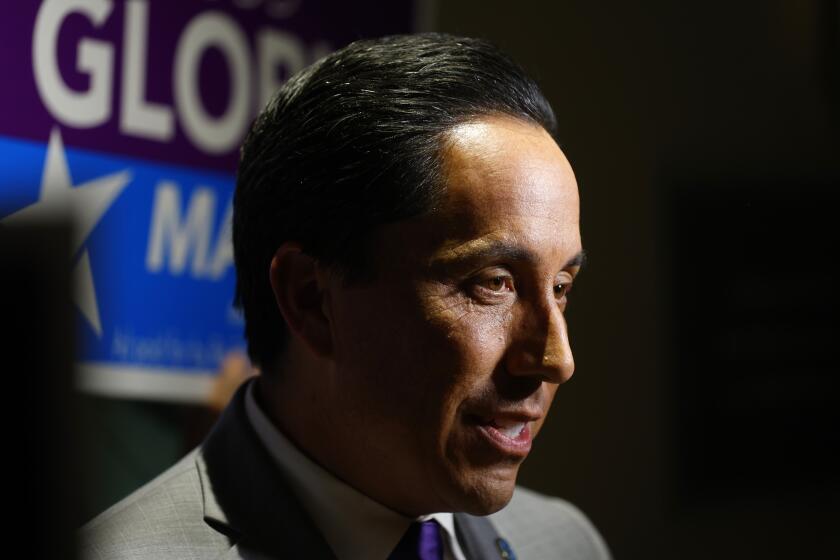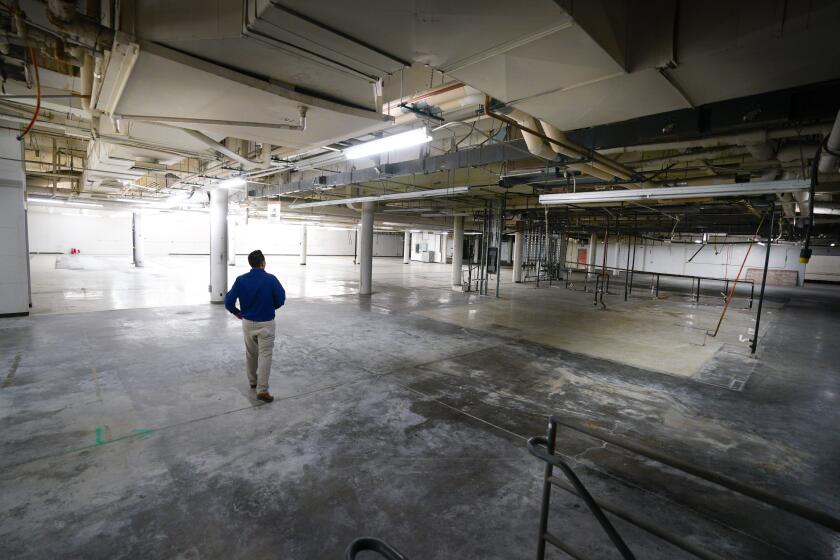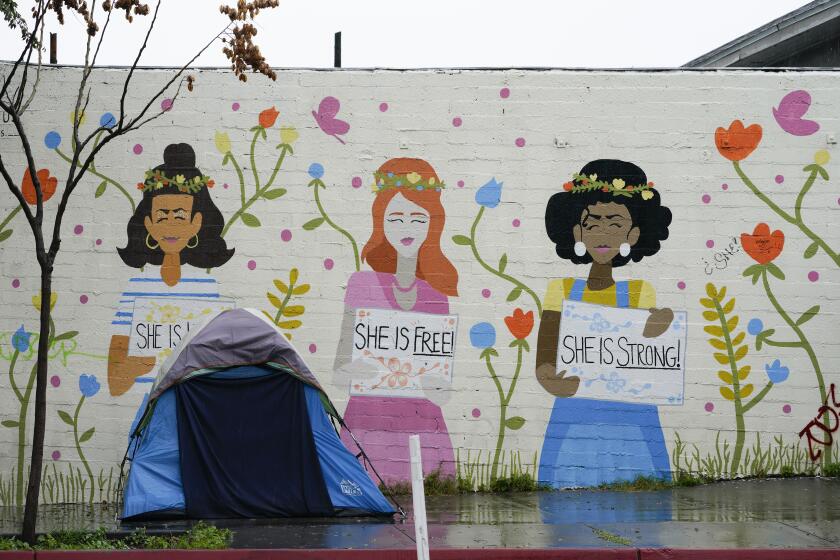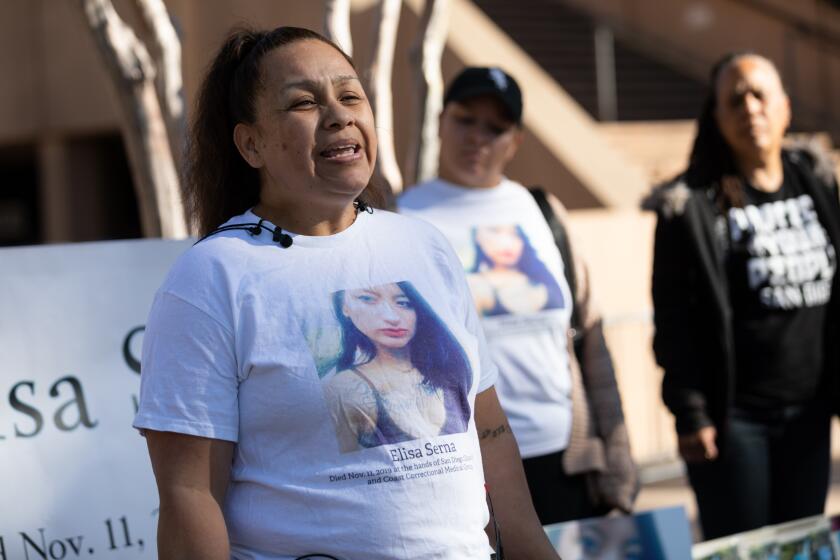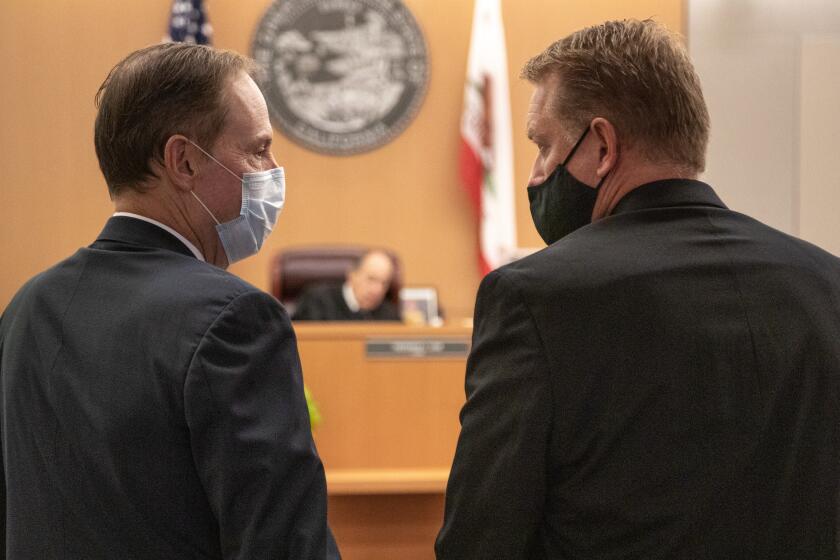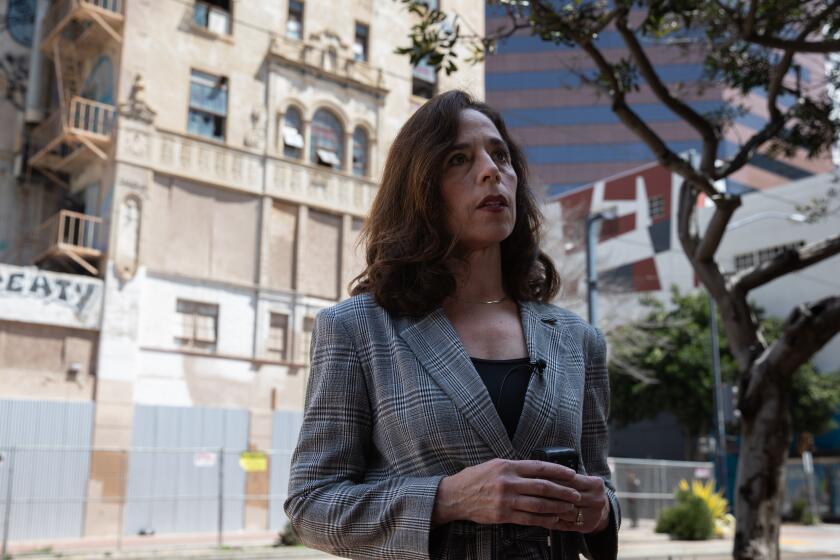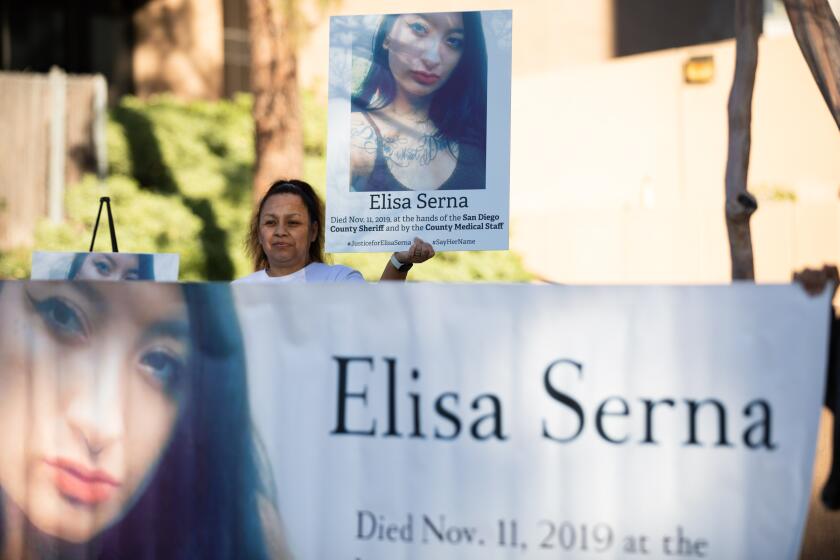Cal State San Marcos decision to honor former president criticized by students
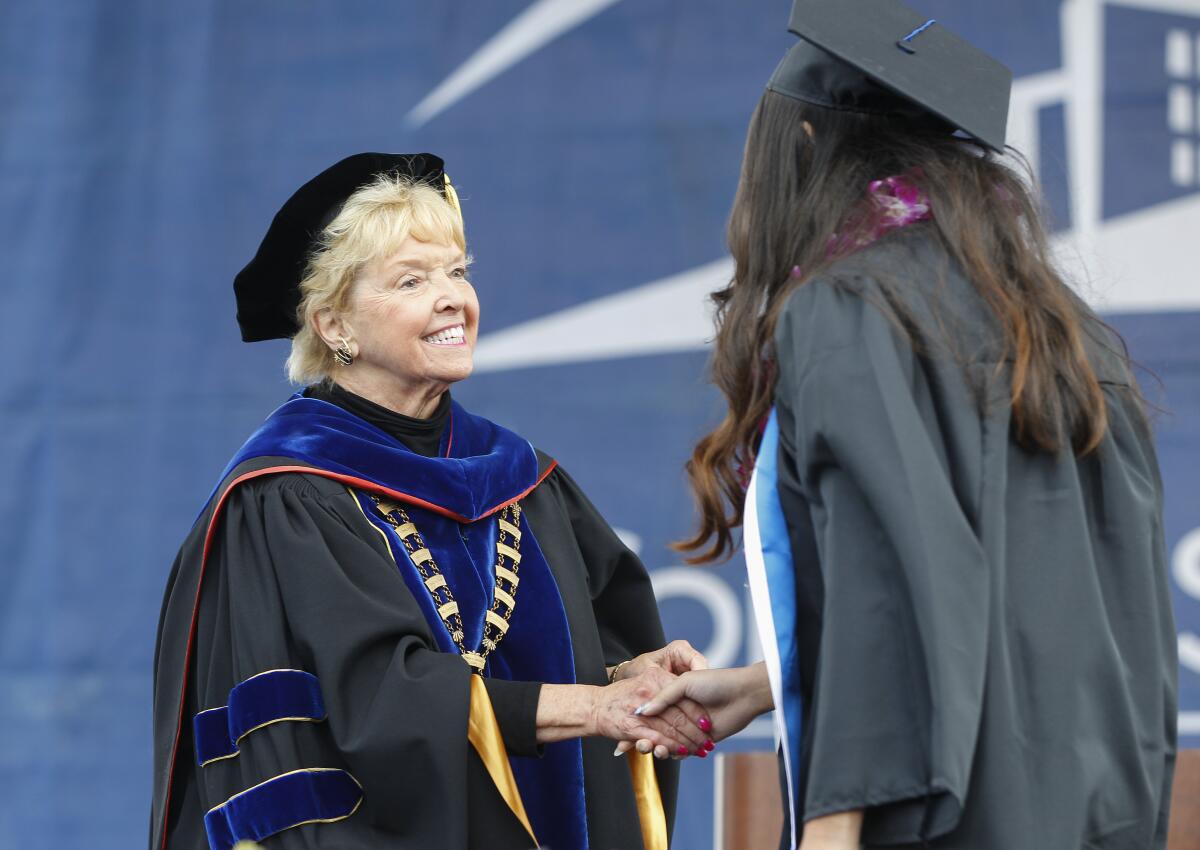
Officials at Cal State San Marcos plan to add the name of their recently retired president to a university institute that is already named after the well-known philanthropist Darlene Shiley — and some students are less than pleased.
The name change, which is expected to take effect later this year, was actually agreed to two years ago, when Shiley and the university first reached an agreement to name the CSU Shiley Institute for Palliative Care in the donor’s honor, officials said.
“At the time, it was the wish of Mrs. Shiley to also acknowledge Karen Haynes in the naming following the requisite two-year period post-retirement for an individual who has served the CSU in an administrative capacity,” spokeswoman Margaret Chantung said in an email.
“Karen Haynes made significant contributions to the founding of the institute and it grew steadily under her leadership,” she said.
Haynes retired June 30, 2019, after 15-plus years at the helm of Cal State San Marcos. She was in charge during the most formative years of the campus and helped it grow its enrollment, faculty and coursework offerings. The university now boasts more than 16,000 students pursuing 43 undergraduate majors and two dozen master’s programs.
The center is due to be rechristened the CSU Shiley Haynes Institute for Palliative Care as soon as July, which would meet the two-year wait requirement called for before Cal State San Marcos leaders or staff may be so honored.
Palliative care is specialized treatment for patients suffering serious and usually life-ending sickness. It is aimed at promoting patient comfort and personal dignity, rather than more curative medical procedures such as surgery or chemotherapy.
The idea of recognizing Haynes has rankled some members of the campus community who remain bothered that Haynes spent thousands of university dollars on limousines, luxury hotels and other questionable travel expenses — and allowed other administrators to do the same.
“Karen Haynes does not deserve to have her name plastered on a building, let alone a new Institute that the CSU has created to be headquartered at CSUSM,” said Faith Garcia, a Cal State San Marcos senior majoring in political science who has been following university travel expenses since The San Diego Union-Tribune first reported excessive spending in 2019.
“She exhibited grossly problematic behavior while wearing a sombrero and sarape in 2008, and later on misusing tax money,” Garcia added. “Her lack of care for the campus community was evident.”
Haynes apologized for her insensitivity after a photo surfaced of her wearing the costume at a fiesta-themed party.
Cal State San Marcos graduate Eduardo Negron also opposed honoring the former president.
“Karen Haynes is a very troublesome figure in the university’s history,” said Negron, who earned his degree last year but also has been critical of university travel spending since before he graduated.
“She misused hundreds of thousands of dollars of taxpayer dollars,” he said, referring to the total amount of questionable travel spending reported by the Union-Tribune. “It’s ludicrous that the administration is trying to cement the legacy of a person that has brought so much embarrassment to the community.”
The Union-Tribune reported in 2019 that Haynes and several other administrators regularly spent university revenue on limousines, resort stays, fine dining and alcohol, among other questionable expenses.
Haynes accumulated more than $9,000 in expenses for chauffeur-driven trips over her last year as president and stayed in a $760-per-night Spanish hotel, records obtained by the Union-Tribune showed.
An audit by the California State University chancellor’s office released last year found that one dean submitted dozens of fraudulent expenses reports to pay for meals, the cost of attending an NFL football game, a Guns ‘N’ Roses concert and other extravagances.
The former dean, Michael Schroder, first went on leave and then separated from the university.
The review by the chancellor’s office was limited to Schroder’s spending and did not examine travel costs racked up by Haynes and other top administrators. Cal State San Marcos did a more extensive internal review of travel expenses after Haynes retired in 2019.
“While we discovered instances of travel spending that fell outside CSU policy, we did not find any evidence of fraud,” the university said last year.
President Ellen Neufeldt, who succeeded Haynes in the second half of 2019, subsequently adopted several new policies designed to prevent future abuses of university revenue by senior administrators.
The move to add Haynes’ name to the palliative care institute was welcomed by Shiley, one of the best-known and most generous donors in San Diego County.
“There would never have been a palliative care education program, let alone a formal center, without Dr. Haynes’ championing the concept and the Shileys funding it,” the philanthropist said by text message.
“When we increased our already substantial donation two years ago, it was with the agreement that the Haynes name would be added to the signage after the requisite two-year waiting period,” Shiley said. “I have not changed my mind from our original intent; Haynes’s leadership for this much-needed health-related education deserves to be recognized.”
Shiley was married to Donald Shiley, the artificial heart-valve inventor who died in 2010 after a difficult illness. Over the years, Shiley donated $6 million to the university foundation, with most of that supporting the palliative care institute.
University officials adopted a specific policy to consider ethical principles when honoring people to shield the institution from any embarrassment.
“Naming commitments are reflections on the ideals and reputation of CSUSM, the CSU and the state of California, and should be reviewed carefully for full compliance with applicable laws and ethical principles,” the policy states in part.
Students are not generally consulted when Cal State officials discuss naming honors at university facilities.
According to the policy, naming decisions are made by Cal State trustees, presidents and other senior organization officials, and honors are typically used to promote donations or recognize long-serving staff.
The public nod to Haynes comes as Cal State San Marcos administrators wrestle with the existing naming honors for William Craven, a longtime legislator who for years championed the idea of building a new state university in north San Diego County.
Years before his death in 1999, Craven referred to undocumented workers as being “perhaps on the low scale of humanity.” He also once suggested it might be possible to pressure employers into not hiring unauthorized workers by issuing identification to citizens of Latino ancestry.
Craven now has a university building named in his honor, along with a bust erected on campus and a traffic circle bearing his name.
Early last month, the school’s academic senate voted 56-2 to remove all references to Craven from the Cal State San Marcos campus. In response, President Neufeldt named a committee to re-examine Craven’s legacy to the school.
Get Essential San Diego, weekday mornings
Get top headlines from the Union-Tribune in your inbox weekday mornings, including top news, local, sports, business, entertainment and opinion.
You may occasionally receive promotional content from the San Diego Union-Tribune.




